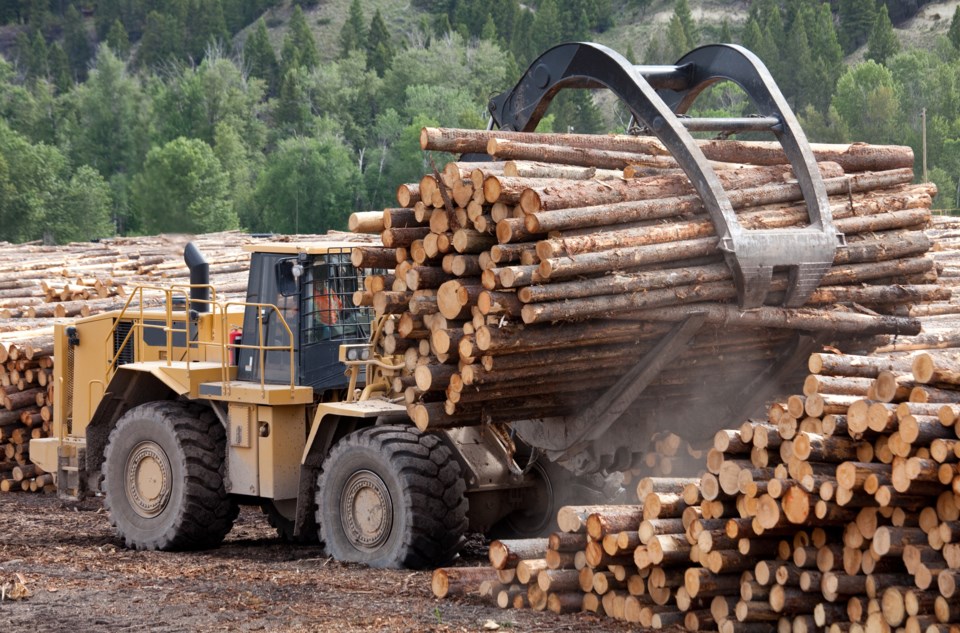Uncertainty has reigned supreme in British Columbia after the Oct. 19 provincial election. No clear winner was left, and it looked likely that there would be an NDP government backed by the Green Party’s two remaining MLAs.
For B.C.'s natural resource sector, this is the worst possible result.
An NDP minority government supported by the Greens will bring a significant ideological shift to the government’s approach to the natural resource sector. Further environmental regulations, whether justified or not, will slow the entire sector’s movement and bring about the termination of ongoing projects, such as new LNG facilities on the coast.
One of the Greens’ two MLAs is Jeremy Valeriote, elected in West Vancouver-Sea to Sky, who is the first Green MLA from the B.C. mainland. Valeriote is an outspoken opponent of Woodfibre LNG, a $5.1-billion project being developed near Squamish that is deeply opposed by local environmental non-governmental organizations.
Although Woodfibre LNG has received both provincial and federal approvals since 2015, some local opposition groups have tried to stymie its progress, while others in the Squamish area support it.
Valeriote’s successful campaign in West Vancouver-Sea to Sky had the support of anti-Woodfibre voters and NGOs like My Sea to Sky, and this will have significant consequences for the NDP-led government. There are already internal pressures within the NDP to clamp down on the natural resource industry, exemplified by figures like Anjali Appadurai, who is a strong opponent of expanding fossil fuels.
Appadurai was David Eby’s main threat in the 2022 NDP leadership contest but was disqualified after being accused by the party of offering to pay for new party memberships, using the Dogwood BC NGO’s lists to recruit, and enticing BC Green members to leave the party to vote in the leadership race.
Even though Eby cruised to victory following her disqualification, Appadurai was a popular candidate, signalling the strength of the environmentalist faction of the NDP. She strongly opposed expanding fossil fuel energy infrastructure.
With the ousting of several rural NDP MLAs by Conservative challengers in the provincial election, such as Nathan Cullen, the former minister of water, land, and resource stewardship, voices in the government who had worked with the resource sector are gone. This could have dire consequences beyond the Woodfibre LNG project.
The Prince Rupert Gas Transmission (PRGT) pipeline is intended to connect northeastern B.C.’s natural gas fields to a proposed LNG terminal near Prince Rupert. Endorsed by the Nisga'a Nation and their energy industry partners, PRGT has faced strong opposition from the Gitanyow Nation and environmental NGOs.
While Eby’s previous majority government worked constructively with other LNG projects, such as the Haisla Nation’s Cedar LNG project in Kitimat, the requirement of Green support will all but ensure PRGT does not receive the same treatment, if it is not scrapped entirely.
It is not just the LNG industry that should be worried.
B.C.’s forestry industry is already plagued by seemingly non-stop mill closures and new regulatory restrictions, and a Green-aligned government will offer little hope of relief. The latest figures paint a grim picture for jobs and new opportunities.
Critics have charged that the BC NDP’s forestry policies, such as deferring old-growth logging and implementing far more stringent regulations, accelerated the industry’s decline. The Conservatives had promised relief, but a Green-backed government is likely to maintain the squeeze.
Mineral exploration is another industry set to face an uphill battle. The Association for Mineral Exploration (AME) has been vocal about what they say is a lack of clarity on mineral tenure and consultation processes.
Ultimately, a Green-backed NDP minority government is the worst possible scenario for the natural resource industry, putting tens of thousands of jobs, innovative energy projects, community livelihoods and government revenues at risk.
Fortunately, the arrival of mail-in and absentee ballots may yet bring out a bare majority of 47 seats for the NDP. Unlike the Greens, the NDP are not outwardly anti-resource, and Eby has shown a willingness to co-operate with the natural gas industry and its partners.
Nonetheless, the NDP's approach to the resource sector still comes with far heavier regulation than their Conservative rivals. The loss of rural MLAs like Cullen could push the NDP in two very different directions.
For one, they could take the loss of Cullen and others as a sign that they need to work harder to persuade resource-dependent communities that the NDP has their back, or they can take it as an opportunity to become an almost fully urban party and forswear rural interests forever.
Considering how close the NDP came to being ousted from power during this election, that choice should be easy. If they cannot secure a majority, however, they may not have any choice at all if the Greens hold the balance of power.
Geoff Russ is a Vancouver-based writer on housing issues.




